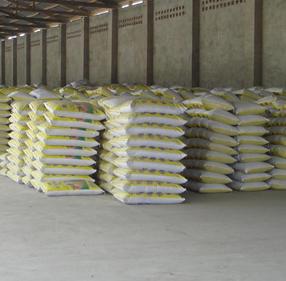Brazil's fertilizer is heavily dependent on imports

Recent data from the Brazilian National Fertilizer Association (ANDA) highlights a growing reliance on imported fertilizers. In 2013, Brazil imported 21.619 million tons of chemical fertilizers, marking a 10.6% increase compared to the previous year. This accounted for 70% of the country’s total chemical fertilizer consumption, with import value reaching $8.885 billion—an increase of 3.51% over the prior year. The trend has continued in recent years, with Brazil's dependence on chemical fertilizers remaining high, especially when it comes to potassium, where the country relies on imports for as much as 90% of its needs.
According to ANDA, Brazil's fertilizer imports were expected to reach $13 billion in 2018. However, if local production projects progress well, the country could cut its chemical fertilizer imports by 9 million tons and reduce costs by $4.5 billion that year. This shift would significantly impact Brazil’s agricultural sector, which heavily depends on external sources for key nutrients.
Vale, one of Brazil’s major mining companies, is currently developing the Carnalita Potash Project in Sergipe. Once completed, the project is expected to produce 1.2 million tons of potash annually. Industry experts believe this could save Brazil up to $17 billion in potassium ore imports over the next 30 years, helping to ease the country’s fertilizer trade deficit. However, the project has faced delays due to legal disputes over the collection of goods circulation service tax (ICMS) in the municipalities of Capela and Japaratuba. These challenges have slowed down the development of the potash initiative, raising concerns about its long-term impact.
In addition to potash, several companies are working on phosphoric acid projects. Vale, Brazilian MbAC Fertilizer, and Galvani are all involved in such initiatives. Notably, Galvani’s phosphoric acid project in Minas Gerais and César states is set to have an annual capacity of 3 million tons. If these projects come to fruition, Brazil could reduce its phosphoric acid imports by 50%, further improving its fertilizer trade balance and reducing dependency on foreign markets.
Solar Separated Street Light,Solar Street Lights Different Power,Solar Street Lighting System,Solar Powered Street Lights
Yantai LUHAO Lighting CO.,Ltd , https://www.luhaosolar.com